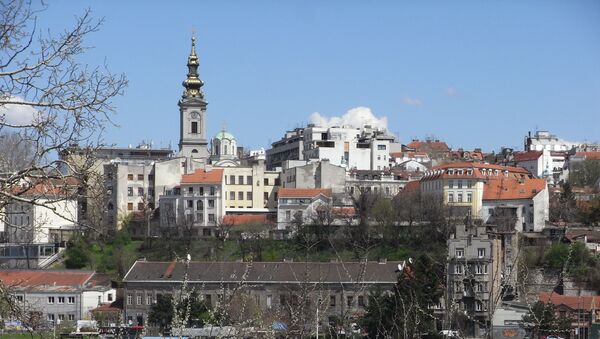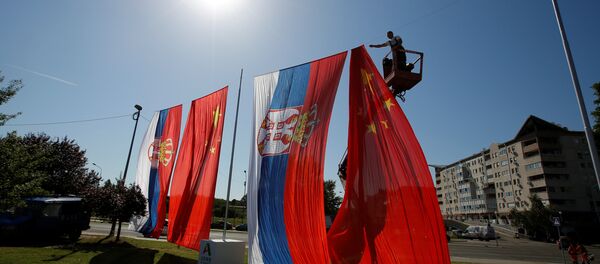Solana was not the first to ring the alarm bells with a former US ambassador to Serbia, Cameron Munter, underscoring the need for the US to play a bigger role in the Balkans to offset China’s growing clout in the region.
A commentary recently carried by Politico said that the Balkans is viewed by Beijing as a major corridor in its “One Belt One Road” project, meant to increase China’s role in European politics.
“Beijing never tires of saying that most of these countries are part of the EU and by working together with these countries it is cementing its cooperation with the European Union as a whole,” Djordjevic told Sputnik Serbia.
He added that China and Russia fully respect the position of the West Balkan countries, which decided to join the EU, and described the Western fears that China could force the Balkans to turn its back on the EU as an attempt to justify the EU’s lack of “fair play” in the region.
“They also fear that European companies will not be able to compete with Chinese firms, which offer equally good services for much less. Hence all these scary stories about bad China and bad Russia,” Zoran Djordjevic noted.
He added that China doesn’t really need Serbia as a gateway to the European market for the simple reason that China is already there.
“The EU doesn’t like to see China’s growing presence in the Balkans because it undermines its domination in Eastern Europe. It looks like it simply doesn’t want to invest there, and even when it does, it always does this with political and economic strings attached, which is something China never does,” Djordjevic said.
“Solana says that Brussels makes no promises that the Western Balkan countries’ accession to the EU will be fast and easy. It looks like before this happens Serbia and others should be content with their unshared love for the EU’s “institutional model and avoid Chinese investments, Russian gas and Chinese-Russian support for its non-recognition of Kosovo’s independence,” Zoran Djordjevic said.
China’s infrastructural projects in Serbia amount to $1.5 billion. Of the $10 billion that China has allocated for projects in 16 countries of Central and Eastern Europe, Serbia has already staked up $2 billion. This is the largest amount in comparison to the other countries.
A large number of Chinese firms are interested in working in the Balkan countries in the field of infrastructure and a wide range of industries, from household appliances to solar batteries and energy, from information technology to environmental protection.




